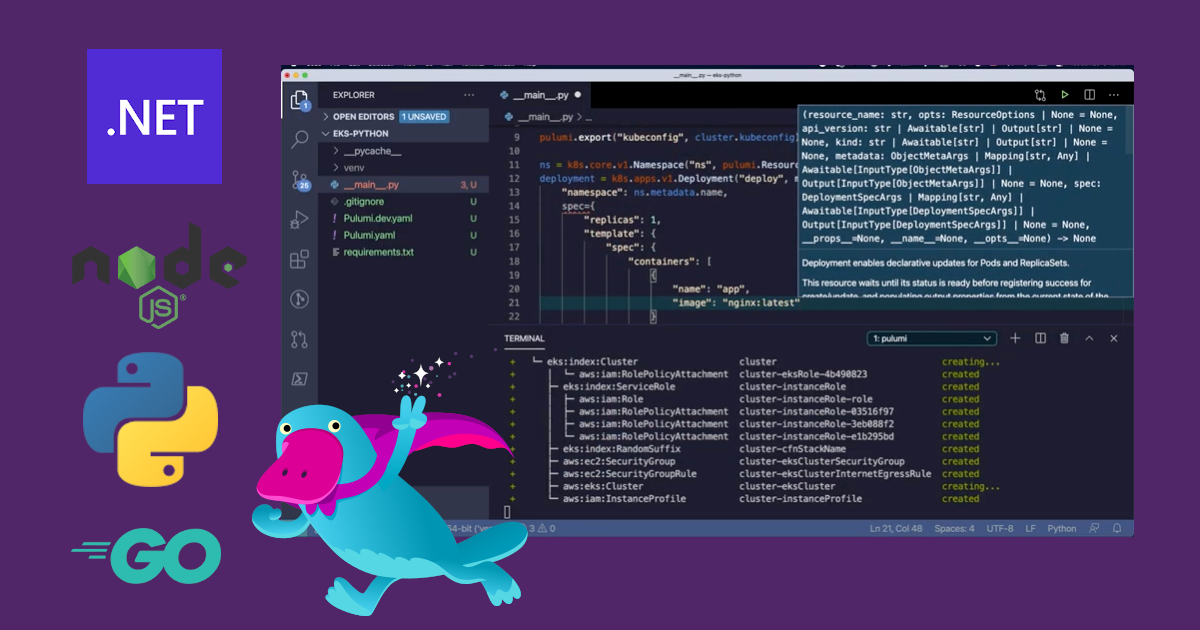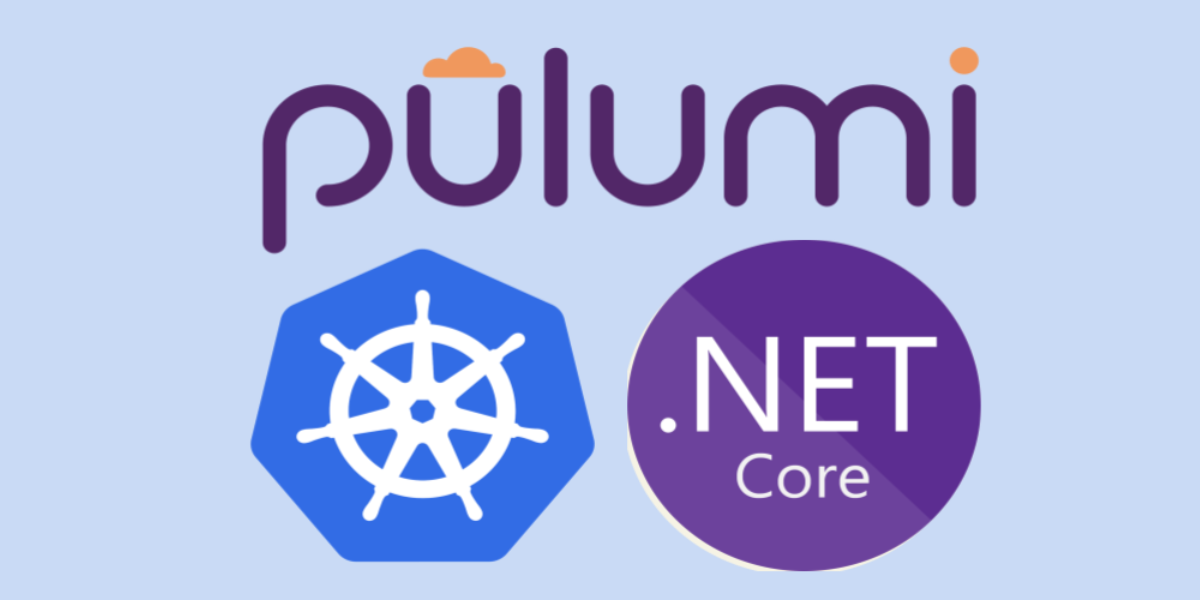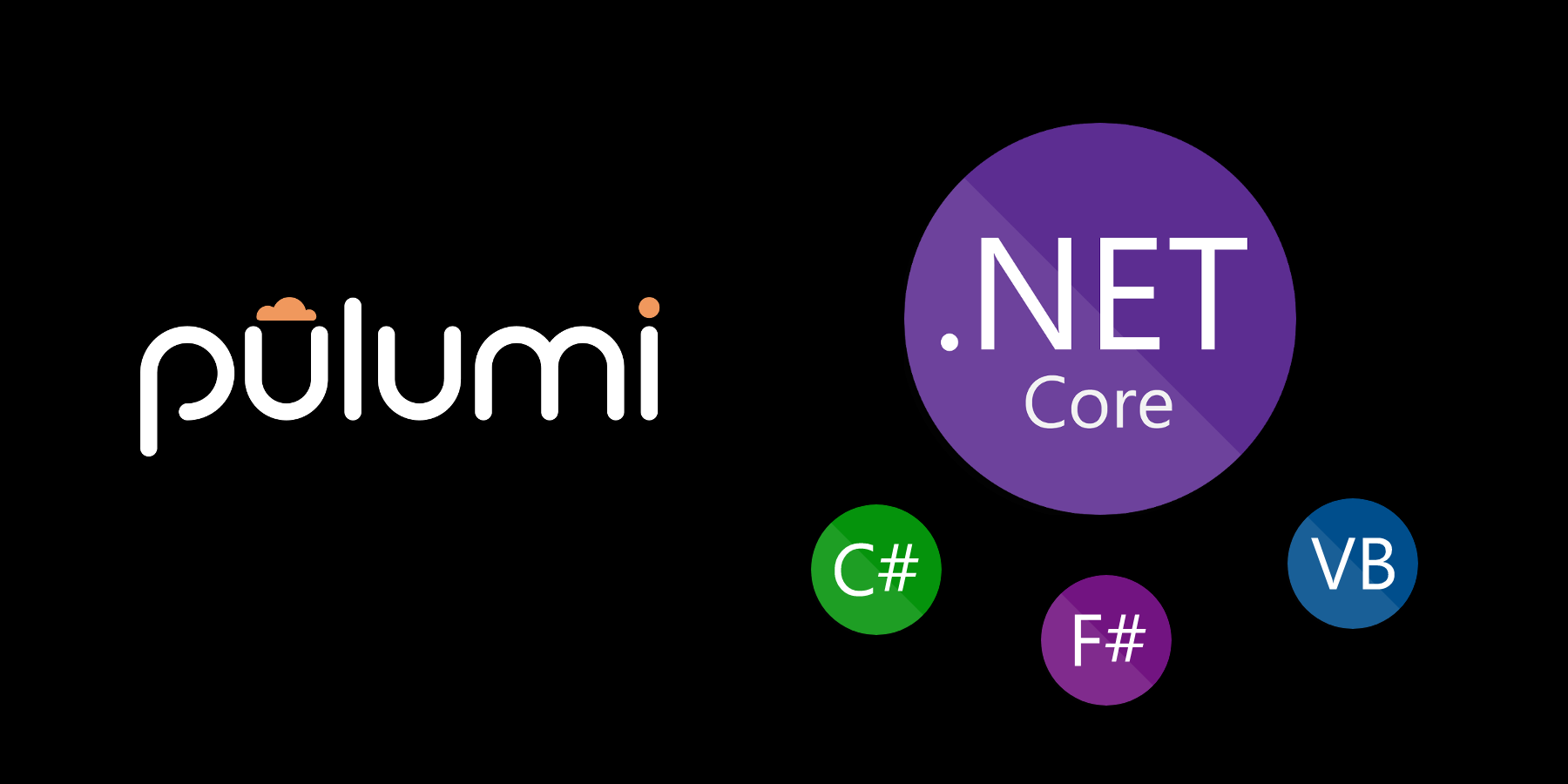Preview of .NET resource providers

Today we are pleased to announce the Preview of .NET support for custom resource providers. This means you can build custom providers using your favorite .NET language, including C#, F#, and VB.NET.

Today we are pleased to announce the Preview of .NET support for custom resource providers. This means you can build custom providers using your favorite .NET language, including C#, F#, and VB.NET.

Joshua Studt is a Solutions Architect at Financial Independence Group and a Pulumi Community member who contributed the C# package for Automation API. Currently available in public preview, Pulumi’s Automation API enables you to provision your infrastructure programmatically using the Pulumi engine. Today, we are excited to announce C# support for Automation API, enabling .NET developers to automate infrastructure deployments, create complex orchestration workflows, build custom ops tooling, and build cloud frameworks.

Pulumi’s infrastructure as code tooling combines the programming languages and tools you already know with the full power of cloud infrastructure. But until now, some Pulumi components for cloud infrastructure, like our popular EKS package for Amazon’s Elastic Kubernetes Service, were only available in a subset of the languages supported by Pulumi.
Now, you can use the EKS package–previously only available for TypeScript–in all four Pulumi languages: TypeScript, Python, .NET, and Go. Regardless of the language you choose, you can manage EKS clusters with Pulumi, starting with the v0.22.0 release. Check out our Modern Infrastructure Wednesday video to see it in action:

Itay Podhajcer is Chief Architect at Velocity Career Labs and a highly experienced software development and technology professional, consultant, architect & project manager. He shared his article on building an Azure serverless cluster for deploying RabbitMQ with C#. The original article was published here.

Because Pulumi uses general-purpose programming languages to provision cloud resources, you can take advantage of native tools and perform automated tests of your infrastructure. The full power of each language is available, including access to libraries and frameworks for testing.
This blog post takes a deeper dive into mock-based unit testing of Pulumi programs written in C# and F#.

Last month, we announced .NET support for Pulumi, including support for AWS, Azure, GCP, and many other clouds. One of the biggest questions we heard was about Kubernetes — “can I use Pulumi to manage Kubernetes infrastructure in C#, F#, and VB.NET as I can already in TypeScript and Python today?” With last week’s release of Pulumi.Kubernetes on NuGet, you can now also deploy Kubernetes infrastructure using your favorite .NET languages.

With the release of Pulumi for .NET preview, we’ve open the doors to infrastructure as code to even more developers and operators. Millions of .NET developers can now use their favorite languages and open source ecosystems to build modern, cloud native applications. We’ve added support for C#, F#, and Visual Basic. Because .NET Core is available on Windows, Linux, and macOS, you have a choice of platforms to use. You can create cloud resources by writing Microsoft .

Today we are excited to announce the Preview of .NET Core support for all of your modern infrastructure as code needs. This means you can create, deploy, and manage your infrastructure, on any cloud, using your favorite .NET language, including C#, F#, and VB.NET.